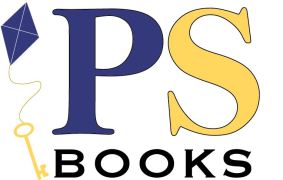This happens to everyone. You are going along just fine…the story is flowing out like liquid gold. Then, BAM!! You hit a wall. You look around and wonder just where did that wall come from? You certainly didn’t write up a wall. But then, there it is all white and huge. You touch your head and feel bumps that form the words, “You Loose Sucka!” First, you are annoyed because you now have the word “Sucka” on your head and then panic starts to seep in. What is this wall? How long will it be up? How do you get it taken down? You break out in hives and you can’t breathe. You know you will never write again. You look to the heavens and just like that chick in that bad movie “I Know What You did Last Summer or Last Fall or Yesterday” you start screaming, “Why”.
Well, the answer is simple, really. You have writer’s block. Now, there are no creams for it. You can’t just take a pill and the liquid gold will just start following again. Also, it isn’t contagious. But it is, in fact, a very real epidemic that plagues writers everywhere. Although it comes on without warning, we can do something to fix it. Here is just what I do.
First, I try to do simple things. I will go get the mail, grab another Coke Zero, punch Yoda in the face, something and anything to just remove myself from the computer. After a few minutes, I will come back to it and see if I can get the momentum running again. If that doesn’t work, then I will actually leave for a longer period of time. I might even call a friend and make them go to the book store with me or play Find the Mii’s on the Wii (have you played this game? You have to find the look-a-like Mii’s…it is very addicting).
Now, if I come back and I am still having trouble, I will save what I have and either start writing something else, or I might start reading. Maybe if I am really upset that I can’t write, I might turn on the TV and watch full seasons of a show (maybe “Sex in the City” or “Scrubs”) or some movie On Demand. The point is I am trying to think of everything but the story so it has time in my brain to wiggle out the kinks.
If you are having trouble getting started, I have a very good suggestion. It’s what I like to call brain dumping. My former students will recall it as a “free write”. Here is where for about ten or fifteen minutes, you write whatever is in your head. No matter how silly or stupid, just write it down. Your writer’s block is happening because you are simply blocked. So, start spilling.
I would love it if you would all humor me and post your own brain dumping. I will do the same. Here’s mine:
12:32pm
Time…why have you punished me? Why is my coke bubbling? Is there a rat in there? A bet there is. It would be my luck to get a rat in my coke. Surprise…it’s ratatatsic coke. My luck, I would drink the darn rat and not even know it.
I swear I am going to wind up like Emily Dickinson. I’ll be dead and people will find all my writing. She had problems with her thyroid as well. See, another connection.
Ha-ha…I wrote the word Sucka…dance sucka dance suck dance sucka…move sucka movie sucka move sucka….that was a funny movie…Blades of Glory.
Hmmm….nothing in the old noggin. That isn’t true and I know it. There is a least ten pounds of something in my head. It could be cheese. Who likes cheese? Frick…I miss that one. You don’t call…you don’t write…all bull really.
12:37pm
I only did five minutes because no one should really have to suffer with the inner workings of my brain. But seriously, try it…I have to go get the mail now.


